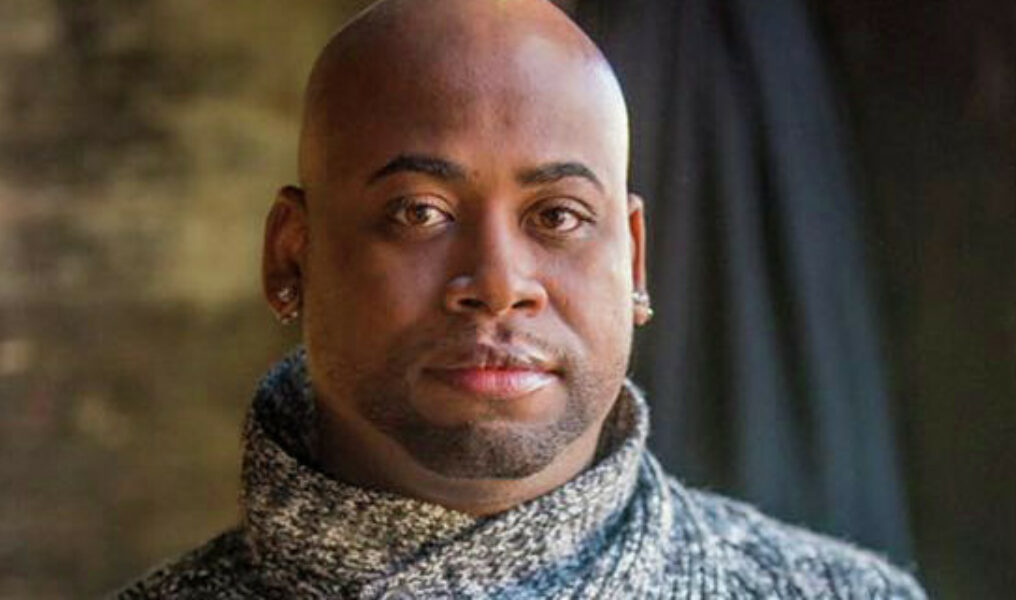National Agency Connects Incarcerated LGBT People with Allies on the Outside
Its mission is noble. Black and Pink bills itself as an "open family of LGBT prisoners and 'free world' allies who support each other." The group works toward the "abolition of the prison industrial complex [and] is rooted in the experience of currently and formerly incarcerated people." In fact, every member of Black and Pink's national leadership circle has been incarcerated at some point. This includes newly-named national director Dominique Morgan.
Born and raised in Omaha, Nebraska, where he still resides, Morgan came out as gay to his family when he was 14 years old. Just two years later, Morgan moved out of his parents' home.
"I got into a pretty abusive relationship with a person who was six years older than I was," Morgan said. "I was able to escape and get away, but I had nothing. I began to commit survival crimes like writing bad checks and stealing cars to sleep in them."
Morgan was eventually arrested. He took a plea and was sentenced to 16 to 18 years in prison.
"I was incarcerated from the ages of 19 to 27," said Morgan. "About six months into my sentence my father passed away. I began to write music. I was put into solitary confinement about a year into my sentence because the queer population grew to be too large," he said. "So, they had me in there about 18 months."
Still, Morgan made the best of it.
"I wrote about 300 songs," he said. "Then, about two years later, I received my associate's degree in culinary arts."
Released in 2009, Morgan moved back in with his mother and youngest sister. But soon, his mother fell ill and eventually died. Morgan then adopted his sister.
"I fell upon advocacy through Heartland Pride," said Morgan. "I didn't know much about it. It was just an open volunteer call. I had been very isolated. Even though I had been home a year I was just working and taking care of my sister. Soon, I started working on an album – my first love is music – and I started going to school. Everyone I talked to who was being paid to do activism had a public heath degree so I got one, too.
"The pace picked up from there," Morgan continued. "My music got larger and as it did the platform for my activism got larger. I created Queer People of Color of Nebraska. I met the founder and former national director of Black and Pink. We kind of stayed on each other's radar. Then I was asked to join the Federal HIV and AIDS Task Force and then the board of directors of Black and Pink as the president."
After the agency's founder left, Morgan briefly served as interim national director before officially being appointed to the post of national director earlier this year.
"Black and Pink is the light that shines, that kind of removes the darkness of incarceration for queer people," said Morgan. "We are able to support people whose bodies and whose lived experiences aren't seen with the same value as their counterparts. I think this support is the foundation of what Black and Pink does and will do moving forward."
As for programs, Black and Pink's largest regular effort is their massive newsletter.
"It goes out to nearly 16,000 people," Morgan said. "In previous years it's been monthly, but for 2018 we're doing eight issues. Everything in our newsletter except my letter as the national director is from the folks inside. They are writing letters. They are submitting art. It's a great way for folks to feel that what they do has value."
Black and Pink also has a pen pal program and has working groups inside the system tackling issues such as solitary confinement. There are 10 national working groups across the country and two actually inside of prisons.
"The other piece that Black and Pink has done that I think has been pivotal is the largest survey of queer incarcerated folks," said Morgan. "It's called Coming Out of Concrete Closets and we had 1,200 responders. Every day I receive emails from students who want to use our data for the work they are trying to do around prison reform. The survey was 133 questions so that's huge."
When asked for examples of some of the things Black and Pink learned from the survey, Morgan didn't have to think long about it.
"I think one of the most important things we have learned is that regardless of a person's potential for release people still have a desire for success and to be better. Folks still wanted education, folks still wanted to earn a living," he said. "Folks still wanted to give back to the community and support their families."
Morgan said the results humanize the prison experience.
"It's hard to look at somebody who is hungry to be better and hungry to give back and say 'this person cannot be redeemed. This person should not have the opportunity to be a better person.' I think that helps people look at our work differently."











